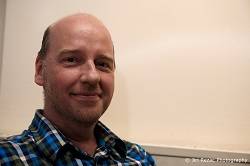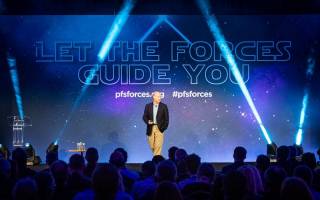Biography
Between 1987-1992 Frank studied his BSc and MSc in Physics & Astronomy at Utrecht University, the Netherlands, and obtained a PhD in Theoretical Physics at the University of Heidelberg, Germany, in 1995.
After a post-doc period he returned to Utrecht University (UU) where he worked from 1997-2010 as Assistant and Associate Professor in Theoretical Physics. In 1997 he became co-founder of University College Utrecht (UCU), the first residential, Liberal Arts & Sciences college in the Netherlands. As fellow for Physics & Mathematics he was responsible for the Mathematics and Physics curricula at UCU. His interest in Economics started emerging here in the educational collaboration with colleagues from Economics. Multidisciplinary work in education has interested him ever since. In 2005-2008 he was founding secretary of the Graduate School of Natural Sciences at UU, encompassing graduate degrees in Astronomy, Chemistry, Computer Sciences, History & Philosophy of Science, Mathematics, and Physics. From 2008-2010 he was member and chair of the Faculty Council of the Sciences Faculty of UU.
In 2010 Frank joined the Department of Economics at University College London as Departmental Tutor. He was a co-founder of the Centre for Teaching and Learning Economics, involved in the setting up of the UCL Bachelors of Arts & Sciences degree and CALT (now Arena) fellow in 2017. Dr Witte is also a research associate of the UCL Center for Blockchain Technology.
Frank was an academic visitor / visiting fellow at St. John’s College Cambridge (UK, 2002), the Quantum Optics and Laser Science group at Imperial College London (2009) and International Visiting Fellow at Grinnell College (US, 2012).
Research
Initially Frank worked on problems of non-equilibrium phase-transitions in Early Universe cosmology and problems in quantum gravity as well as issues in Physics and Mathematics education. As his interest in Economics began to grow, he turned to questions concerning:
- the applicability of physics-inspired methods to addressing questions in Economics and Social Sciences,
- the role of complexity and networks in the interaction between environmental and economic systems, and
- the Economics, Sociology and Philosophy of Science, with a focus on modelling, teaching, concept-formation and the relationship between models and narratives.
He is interested in how science-inspired narratives can be used to talk about economic or social processes, in particular including those that shape science and technology themselves, as well as to discuss the impact of science and technology on society, and what short-comings and conceptual failures such narratives can contain.
Teaching
Frank teaches the following courses at University College London:
- Computational Methods for Economists ECON0114;
- Environmental Economics ECON0052;
- Economics of Science ECON0055;
- Economics Dissertation ECON0117;
Publications
- M. Swan, R. Dos Santos, F.M.C. Witte , Quantum Information Techniques, to appear in Special Issue on Quantum and Post-Moore’s Law Computing, IEEE Computer Society
- M. Swan, R. Dos Santos, F.M.C. Witte, Quantum Computing: Physics, Blockchains, And Deep Learning Smart Networks. World Scientific; 2020 Mar 20.
- C. Spielmann, F.M.C. Witte, Exposing Undergraduate Students to Research Methodology and Critical Thinking, The Sixth Annual AEA Conference on Teaching and Research in Economic Education June 1-3, 2016, Atlanta, USA;
- F.M.C. Witte, Quantum 2-player gambling and correlated pay-off, Physica Scripta 71 (2), 229 (2005);
- F.M.C. Witte, Lightlike infinity in CGA models of Spacetime, Journal of Physics A: Mathematical and General 37 (42), 9965 (2004);
- F.M.C. Witte, Spin-densities in pseudo-classical kinetic theory, Physical Review A 55 (6), 4093 (1997)
Media
- Mathilde Robinet & Frank Witte, Les enseignements de la lutte anti-tabac face à la crise climatique, La Tribune 17/12/2019
Blogposts
Frank writes occasional blogs on various topics on his My Imaginary Numbers blog and is a regular contributor about Star Wars matters on Clone Corridor. And has contributed to the Naked Scientists.
 Close
Close



